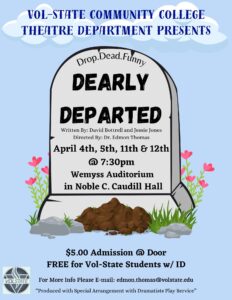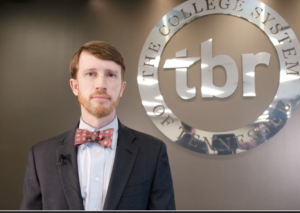Last updated on March 4, 2015
by Mackenzie Border// Staff Writer
Volunteer State Community College’s Humanities Matters Lecture series for the spring 2015 semester will focus on the current racial tension in the United States and will take place throughout February.
The next lecture, “James Baldwin’s Another Country, Martin Luther King, Jr. and the Politics of Love,” will be Today, from 11:10 a.m. – 12:45 p.m., and will be hosted by Laura Black, chair of the English department.
Black was asked how she decided on the topic of her talk, saying, ìI’ve been planning this presentation since last semester, but it is really a smaller piece of a larger work that I’ve been working on for a lot longer.
“I’ve been studying the literature of James Baldwin for a few years now, specifically his civil rights literature.
“This will be my focus for my Ph.D. dissertation that I hope to complete in the next couple of years,” said Black.
“I believe Baldwin is one the most underappreciated American writer and intellectual of the 20th century. James Baldwin was a unique person in civil rights history.
“He was a talented writer, who happened to be black and gay, and whose books and published articles from the early 1960s focus on race and radical integration.
“He was interested in advancing social justice, racial equality, and civil rights for everyone, and these issues are still important today,î said Black.
Grady Eades, associate professor of History, will be holding a discussion with Nancy Blomgren, associate professor of English, called “Not an Aberration: Race, Slavery, and American Values.”
The event was cancelled due to weather issues, and has not been rescheduled.
“Professor Nancy Blomgren and I have been tinkering with this idea for several months. “
“We began planning it in the fall term and have begun to work out details a few times since the spring term. This was definitely Professor Blomgren’s idea,î said Eades.
“For me, the idea is interesting to explore because it is potentially a little volatile and runs against conventional wisdom. We’re going to be looking at literature that supported slavery and was against equality; not exactly a walk through the tulips.”
“The point though is not to show support for these ideas, but to demonstrate how far back such ideas go and how critical they have been to American history and culture,î said Eades.
“We’ll be discussing the arguments made in favor of slavery in the decades before the American Civil War.”
“Many people who supported slavery felt that Uncle Tom’s Cabin did not give an accurate picture, so there were several novels written to answer Harriet Beecher Stowe’s arguments.”
“These became known as anti-Tom novels, and they provide some surprising insights into explaining how slavery advocates justified the ownership of other human beings.”
“Our title, “Not an Aberration,” reflects the ways slavery and racism were engrained in American ideology, not a departure from it,” said Blomgren.
“[The topic] is clearly relevant. The title of the presentation is “Not an Aberration” because we both felt that we wanted to get across the idea that racial issues in the United States are not new.
“There is a long history of African Americans being seen and treated as inferior by white Americans and we wanted to look at an often forgotten piece of that history.”
“Given the events in Ferguson, New York, and Cleveland – and that’s just the last six months – it is important to show these ideas have roots that go back a long, long time,î said Eades.
“Transcendentalist Communes in Fiction by Nathaniel Hawthorne and Louisa May Alcott” was the second lecture planned for the series. This event was also cancelled due to weather, and will be rescheduled.
Shellie Michael, professor of English, will be providing the lecture.
“Venerable American writers Nathaniel Hawthorne and Louisa May Alcott both lived at communes in the 1840s, a time of radical reform movements much like the 1960s.”
“Since America’s inception, people have formed utopian communities for a variety of purposes. The communes at which Hawthorne and Alcott lived were attempts to apply Transcendentalist philosophies to everyday living.”
“Both writers wrote fiction about their experiences, giving us rare glimpses into life at 19th century American communes,” said Michael.
Michael discussed how she decided what to talk about and what the main point of the talk will be.
“My talk will be about the dissertation I’ve been researching and writing for the past two years. I’m a PhD student in English at MTSU, and I’m at the level called ABD: All But Dissertation.”
“This means I’ve finished all the program requirements, such as coursework and several major exams in my areas of specialization except the book-length research project, called a dissertation.
“People, especially Americans, have always experimented with communal living.”
“in my talk, I’ll discuss the history of utopianism in America as well as communes in Tennessee, some of which still exist today.
“I would also be glad for people to get a new perspective on Nathaniel Hawthorne and Louisa May Alcott, seeing them not as stodgy, old-fashioned writers but people who lived in exciting times and had interesting experiences,” said Michael.




Comments are closed.